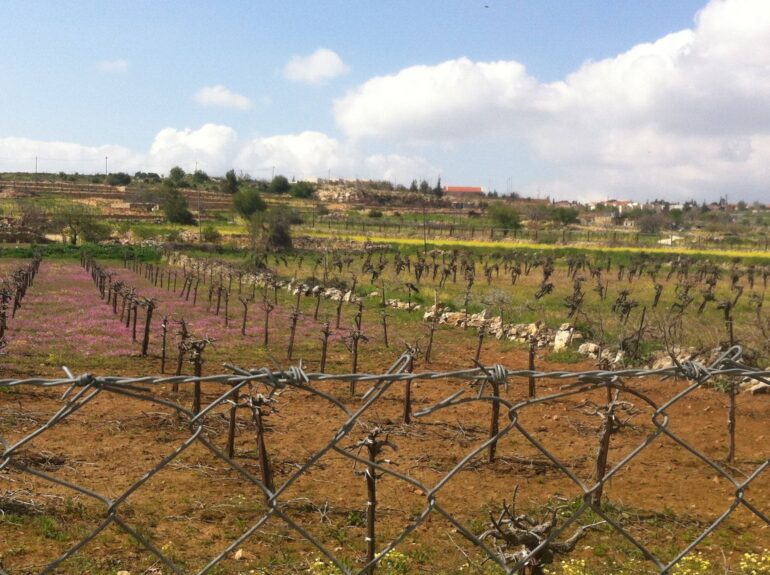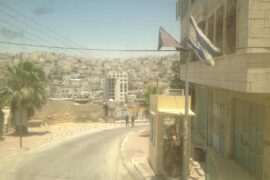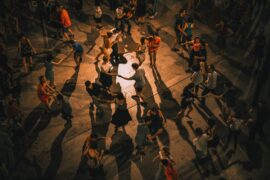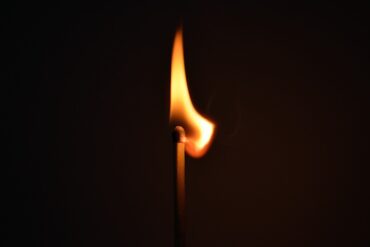On the tenth of Tevet, today, the Jewish people fast. One of our religious days of mourning for the process of the destruction of the Holy Temple and Jewish life in the land over 2,500 years ago. Remembering the beginning of our exile, a journey that takes us from Home into the world of Other. Encountering Other and becoming Other. For on these days 3 events happened:
1. The walls of our First Temple were surrounded in siege, the beginning of the path of tears to the rivers of Babylon.
2 Our national writer and leader who inscribed our inner essence into portable texts passed away.
3. We saw our sacred text forcibly translated from our Holy Tongue into a secular and foreign language. Exile, translation and the profaning of the sacred are the exits from indigenous thought to post-modern filters. Paths of tears no doubt – of tremendous loss and displacement – but also, as time has shown, tremendous opportunities for growth, evolution and change.
Our people left our original context, the incubation and growth of our national culture was cut from its umbilical cord – signaled most dramatically by the end of prophecy – which is also understood in Jewish thought to be a product of the open channel when language, place and identity are bound, a semiotic experience so deeply embedded in physical reality as all indigenous languages are. The one-to-one relationship between a language, culture and reality all of a sudden turns into a struggle of interpretation. The breaking makes the need to redefine and construct new identities – new meanings.
On this day, the king of Babylon completed encircling the walls of Jerusalem, our interior shared life became subsumed by an outside reality – another cosmology – and the walls fell. The meeting with Babylonian culture became the meeting with Greek culture, with Yemenite Culture, with Spanish culture, with Egyptian culture, with German culture, with American culture and to the four corners of the earth. This great and traumatic process has been experienced by almost all peoples of the earth by this year of 5779 (2019 in the Gregorian count). Living today in multiple calendars, multiple languages and meanings – where understanding becomes a contested terrain. This breaking out to the post-modernist commons, where we all meet and seek to reestablish the meanings and morals of what used to be our cultural givens is no doubt an incredible experiment.
The reconstruction of identities and meanings happens again and again in our people’s history. And as they rise – in whichever current that comes to define a movement, they eventually become self-referential systems. Defining In and Out. Who’s at the table and who’s not. Yet the fast days that face us each cyclical year are perhaps there to challenge these self-evident truths. Inside the fortresses of dogma, you don’t find humility, seeking nor evolution. The encounter with the outside is a core to growth and evolution. But it’s a slippery slope to get back home, to recreate visions that grow as history and the world around us demand.
I want to look at one facet of the process, and show how it’s playing out in our people – the Jewish people’s discourse right now.
In trying to decide what is right and wrong, the tragedies of the 20th century led to the development of a human rights discourse. From the no-mans land of the United Nations, where we seek to all be people while still being our specific nations came the treaty and according of human rights. This came from “outside the walls” for each specific culture clearly has its own values of obligations to the inhabitants of its land – the particular social contracts that express the values involved in relating to a neighbor or a stranger. As nation conquered nation and the concept of World War ironically wrought a (at least perceived, in the most imperialistic tone) “global community,” the recoil against all things national and a genuinely hopeful seeking for a simpler “human” understanding developed.
(In the post-modern existence, we are essentially all strangers, mere humans to each other, despite the attempt to legislate a universal fraternity we see that the actual world we live in is still guided by the identities we humans prefer to live in.)
While it is nice and sweet and a necessary step when the UN resolves that there has been an aberration of human rights, the actual work must take place with the peoples and local realities where these violences are taking place. No humans inhabit those lands – only religions, ethnicities, family groups and nationalities. These conflicts are not begotten by humans, but rather by specific peoples, Israelis and Palestinians for example, who have their own internal sophisticated systems of meanings, ethics and understandings. When we return inside the walls – and try to eat the fruits of post-modernity, we find the peels incredibly challenging to remove and their taste is foreign.
To return to the walls – the ins and the outs.
So in our sojourns beyond our walls — through the incredible experience that has swept so many diverse cultures into the abstraction and ideals of “humanity,” we have come to some values that many seek, with the greatest and holiest ideals of righteousness, to bring back within the walls. To bring this discourse back home demands an incredible work of translation. And those who fail to translate their discourses of human rights and justice back into the language of the local realities in which all people actually live, will continually fail to see the change they hope to bring. If I look inside our walls, which our people have been blessed and challenged to reestablish in modern Israel, the headlines are full of the polarized discourse around “foreign-funded anti-Israel initiatives” – many proudly bearing the banner of human rights. Perhaps these groups’ greatest mistake is their failure to translate their hopes back into our own language? If only they would replace their language and dreams of exile with the incredibly rich language and hopes of redemption…





